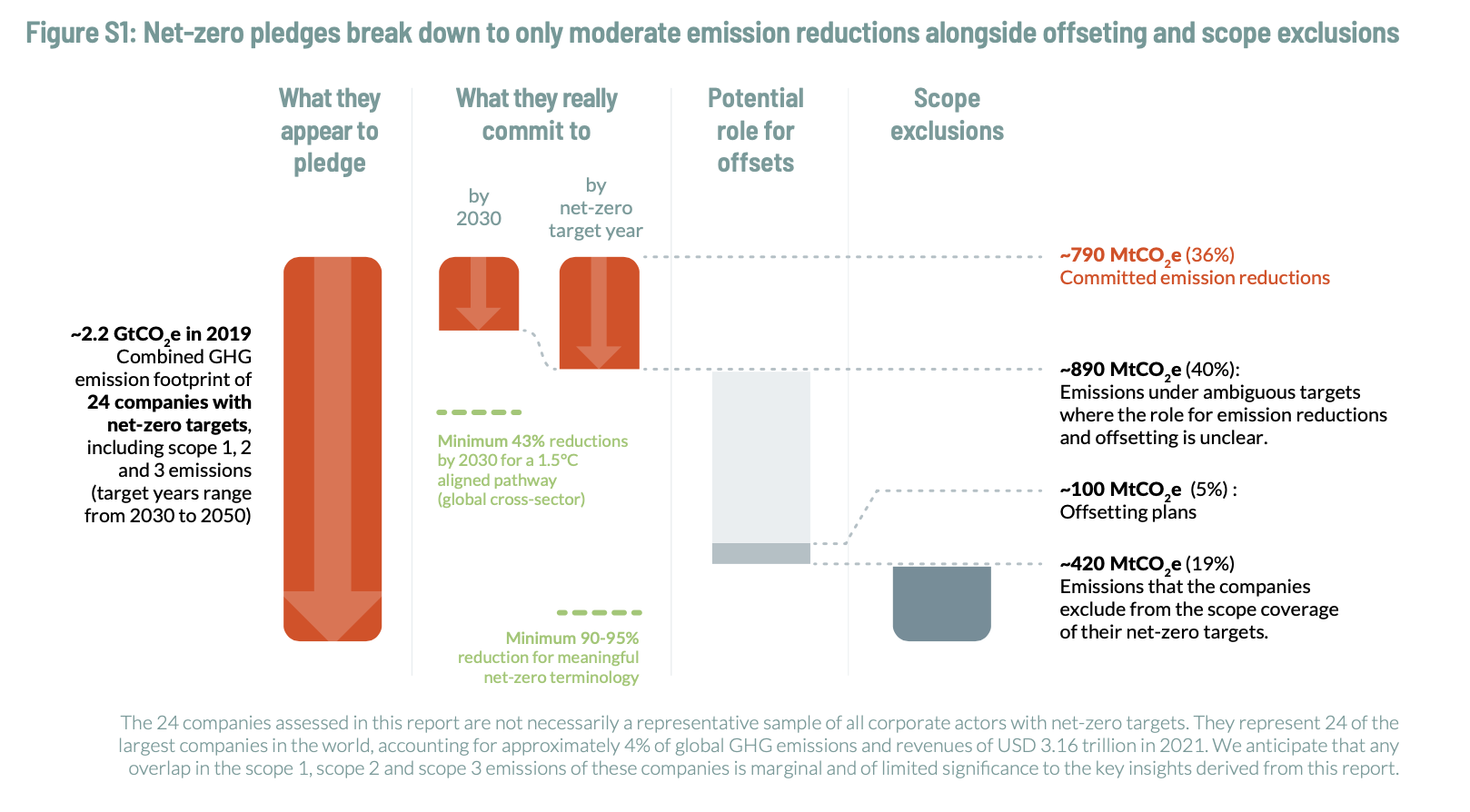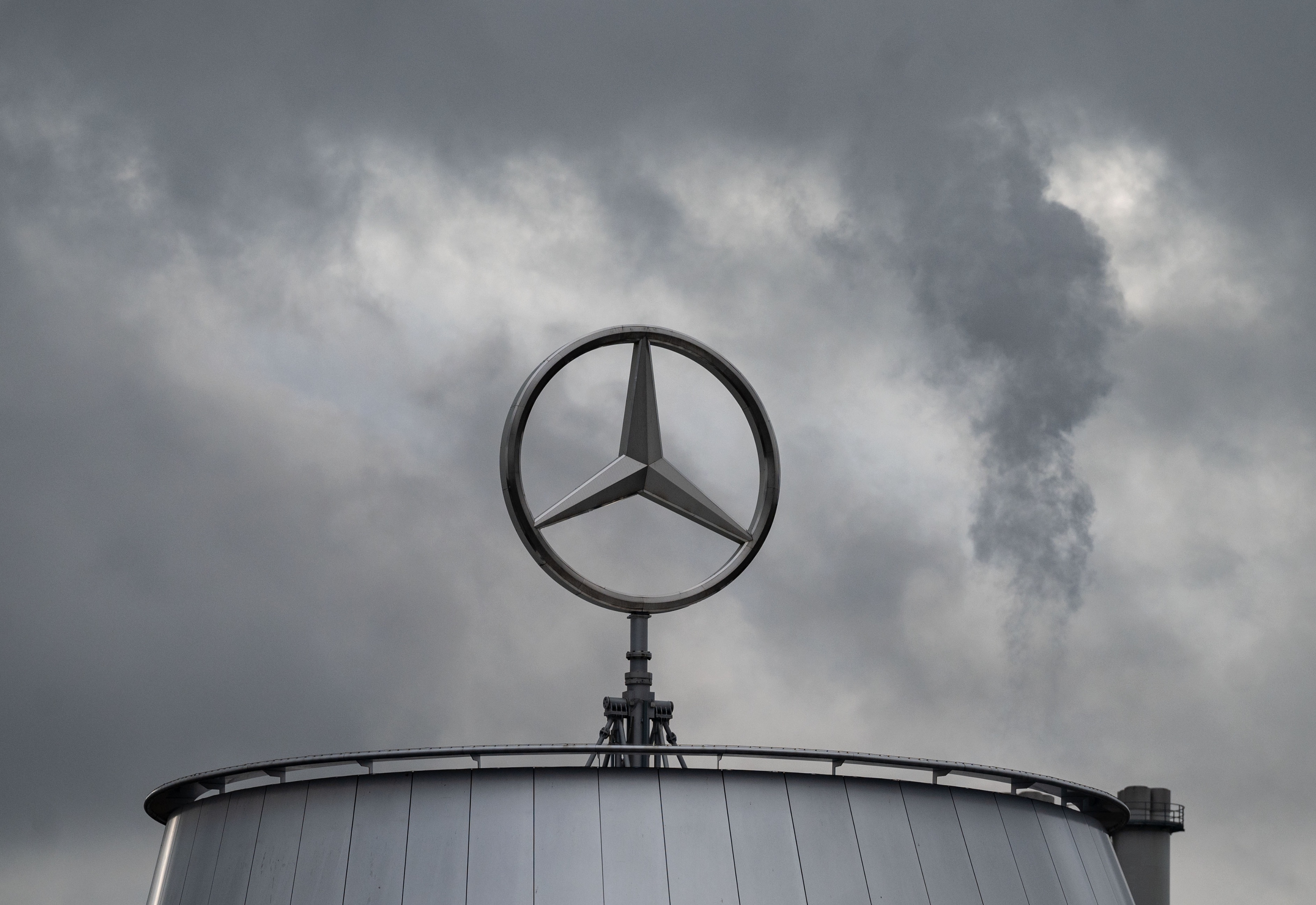Global corporations like Amazon and Mercedes-Benz want us to think they’re serious well-nigh taking on global warming. But self-sustaining analysts say their climate pledges can’t be taken at squatter value.
Climate commitments from 24 of the world’s largest self-proclaimed untried companies are “misleading” and “wholly insufficient” to alimony global temperatures from rising whilom 1.5 degrees Celsius (2.7 degrees Fahrenheit), equal to a searing report released Monday by the NewClimate Institute and Stat Market Watch, two European environmental organizations. These two dozen companies have pledged to reach stat neutrality by 2050, but their cumulative commitments imbricate only 36 percent of their total greenhouse gas emissions — in large part due to their reliance on spurious stat offsets or their failure to write huge swaths of the emissions from their supply chains. For 17 of the companies, the authors highlighted an “inadequacy or well-constructed lack” of very plans to substantiate their net-zero pledges.
Companies are engaging in an “aggressive communications campaign” to state that they will be net-zero, said Gilles Dufrasne, Stat Market Watch’s lead on global stat markets, during a media rundown last week. “But that is simply not what they’re pledging. … I would categorize that as greenwashing.”
The report authors looked at climate commitments from some of the largest international companies that are part of the Race to Zero campaign, a global initiative that commits institutions to a suppositious pathway toward limiting global warming to 1.5 degrees C. The researchers identified eight of the world’s highest-polluting sectors, including automotives, electronics, and malleate retail, and selected three companies from each sector. These companies are outspoken well-nigh their decarbonization commitments, which in some cases they have prominently advertised.
Overall, the report paints a pessimistic picture of corporate climate responsibility. It found 15 of the 24 companies’ climate pledges to be of “low or very low integrity,” eight to be of “moderate integrity,” and zero to be of “high integrity,” based on a range of factors like their transferral to long-term emissions reduction. Several pledges, including ones from Amazon and American Airlines, rely on misleading stat credits linked to forests that are unlikely to sequester stat for increasingly than a few years. Others, like a 2040 stat neutrality pledge from the French grocery giant Carrefour, simply omit so-called telescopic 3 emissions — the emissions from the products companies sell to customers. These emissions may represent more than 90 percent of a company’s climate pollution (98 percent, in Carrefour’s case).

Companies in some of the most polluting sectors — like the car visitor Volkswagen and the meat behemoth JBS — had no suppositious plans to transpiration their merchantry models or diversify yonder from activities that are inherently emissions-intensive. Others, including PepsiCo and Nestlé, have built hype virtually a practice tabbed “insetting,” which involves offsetting emissions that originate within their supply chains. (For example, a visitor could tropical one of its factories and requirement this cancels out the emissions from flipside one.) The NewClimate Institute and Stat Market Watch said this is an “illegitimate” concept, and plane increasingly poorly regulated than most offsets.
Just one visitor — Maersk, the maritime freight giant — had a pledge deemed to be of “reasonable integrity,” as it was one of the only ones whose net-zero target covered 90 percent or increasingly of its overall emissions footprint. Pledges from fast malleate visitor H&M, the automaker Stellantis, and the glue and touchable manufacturer Holcim moreover covered 90 percent or increasingly of their stat emissions, but those pledges performed increasingly poorly on transparency or reliability.
Thirteen of the companies named in the report responded to Grist’s requests for comment. H&M, Mercedes-Benz, and Volkswagen said they welcomed the report for recognizing their sustainability initiatives and, withal with Amazon, Ahold Delhaize, Foxconn, Samsung, and Thyssenkrupp, reaffirmed their previously stated stat neutrality targets. Carrefour and Walmart disagreed with the report’s methodology and said it mischaracterized their emissions goals. Maersk responded to criticisms well-nigh its use of biofuels, saying it sees them as a transition fuel until alternatives are misogynist at scale, and said its emissions targets are aligned with guidance from third-party verification organizations. Microsoft and Stellantis declined to comment.
Thomas Day, an expert on stat markets and corporate climate whoopee for the NewClimate Institute and a coauthor of the analysis, emphasized the importance of scrutinizing companies’ short-term emissions pledges, many of which have been “inappropriately” certified by third-party organizations. Almost all of the 24 companies analyzed by the NewClimate Institute have emissions reduction targets for 2030, and 16 of these have been certified by the Science-Based Targets Initiative, or SBTi — a widely respected certification soul whose stamp of clearance lends legitimacy to private sector climate commitments — but their pledges only a imbricate a median of well-nigh 15 percent of their total climate pollution between 2019 and 2030. This is in unrelatedness to the global emissions reductions of 43 and 48 percent, respectively, that the Intergovernmental Panel on Climate Transpiration says is necessary in that time frame to alimony temperatures from rising past 1.5 degrees C.

“These companies may be members of voluntary initiatives, but nearly all companies making these pledges are making them in response to consumer and investor pressure,” Day said. “They’re making the specimen to regulators that they do not need to be regulated.”
In response to Grist’s request for comment, SBTi linked to a seven-page technical statement explaining some differences between the way it evaluates companies’ net-zero pledges and the report’s methodology, including variegated definitions of stat offsets.
Eduardo Posada, an reviewer for the NewClimate Institute, said the report made well-spoken the need for greater clarity and enforcement of existing consumer protection laws, as well as new rules to alimony up with the rapidly-evolving world of corporate greenwashing. As with supplies that’s certified “organic,” he said, decarbonization claims should be required to meet a list of criteria to prove they’re increasingly than just empty words. The European Union is currently considering a crackdown on greenwashing, and federal agencies in the U.S. are in the process of tightening regulations on emissions disclosures and misleading environmental marketing claims.
Posada endorsed a wholesale ban on terms like “carbon neutral” and “net-zero” in advertisements, since they unshut the door to uncertainty and questionable stat offsets. “The terminology is misleading in itself” and is likely to be misunderstood by the public, he told Grist. “‘Zero’ is OK considering it ways total or near-total decarbonization, but the ‘net’ is where all the tricks go into. Companies can do many things inside of that ‘net’ word.”
“We believe it would be increasingly constructive, increasingly helpful if companies unquestionably single-minded to reductions instead of these slogans,” he added.
This vendible has been updated to include a response from Maersk.
This story was originally published by Grist with the headline Global corporations’ climate pledges are ‘misleading,’ not credible on Feb 13, 2023.






